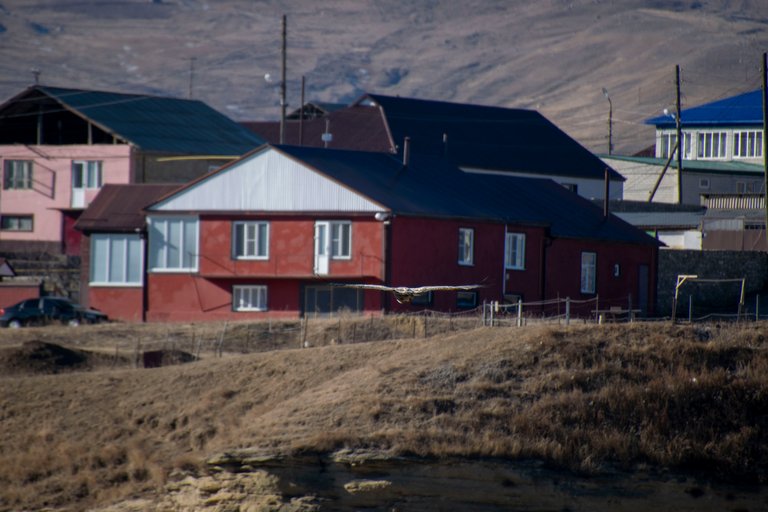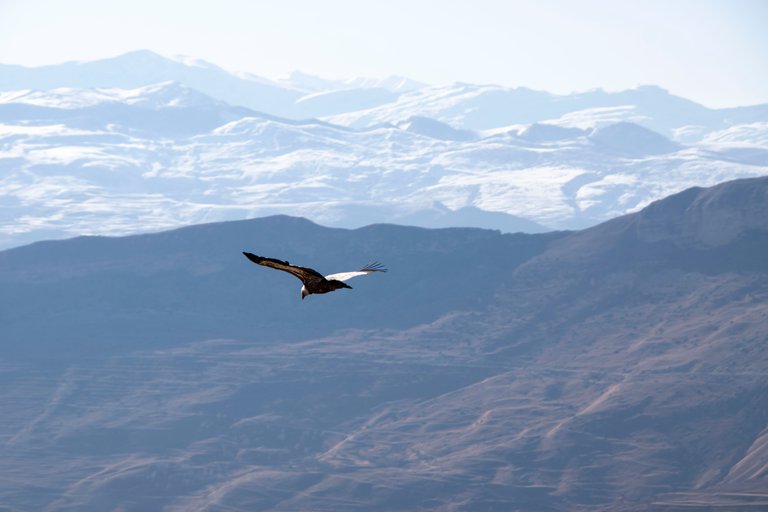Greetings friends.
Hi, @nelinoeva.
You've given me a wonderful assignment. But the most interesting thing is that now I remembered I should have photos of seagulls attacking me from the sky. But I need to dig deep into the archive to find these photos.
That's why I took photos from my trip to Dagestan. I had prepared them for the show a long time ago, but they were lying and waiting for their turn. Now it's time for them.
SHOW ME A PICTURE OF BIRD WINGS.

A little for reference - what is Dagestan?
Dagestan is a republic within the Russian Federation, located in the North Caucasus region of Eurasia, along the Caspian Sea's western shore. Known for its rich cultural diversity, Dagestan is home to multiple ethnic groups and languages, including Avars, Dargins, Lezgins, and Kumyks. The region is famous for its mountainous terrain, traditional crafts, and vibrant cultural heritage, including music, dance, and cuisine. Makhachkala, its capital, is an economic and cultural center in the republic.
Here I saw an eagle soaring in the sky for the first time, but it turned out that it was actually not an eagle, but a Gyps Fulvus (Griffon Vulture). This large bird is iconic for Dagestan. By the way, its wingspan reaches 2 and a half meters.

I was standing on the edge of the Khunzakh Canyon and suddenly this Griffin appeared. He just planned without a single swing and went down. He was under my feet. It was amazing to see a bird that always soars high in the sky flying under my feet.
I was hampered by the sun shining in my face. But I had no choice, I couldn't ask the bird to fly in the right direction.

Who sees the bird? And what do I know about this bird?
The Gyps Fulvus (Trigonoceps occipitalis) is a striking bird of Dagestan.
Recognizable by its distinctive white head and neck, contrasting with dark brown and black body feathers, this vulture has a sharp, hooked beak suited for tearing flesh. Its wingspan can reach up to 2.5 meters, allowing it to soar effortlessly while scanning for carrion, its primary food source. Unlike many vultures, it often feeds alone or in pairs rather than in large groups. The Gyps Fulvus is a relatively rare species and is classified as critically endangered due to habitat loss, poisoning, and human disturbances.

banner created by @barbara-orenya

Follow Me For Daily Posts!
Good luck and have fun
@apnigrich

//:# (!worldmappin 42.55400 lat 46.72284 long Gyps Fulvus (4 pics) d3scr)

You can check out this post and your own profile on the map. Be part of the Worldmappin Community and join our Discord Channel to get in touch with other travelers, ask questions or just be updated on our latest features.
Congratulations, your post has been added to the TravelFeed Map! 🎉🥳🌴
Did you know you have your own profile map?
And every post has their own map too!
Want to have your post on the map too?
- Go to TravelFeed Map
- Click the create pin button
- Drag the marker to where your post should be. Zoom in if needed or use the search bar (top right).
- Copy and paste the generated code in your post (any Hive frontend)
- Or login with Hive Keychain or Hivesigner and click "create post" to post to Hive directly from TravelFeed
- Congrats, your post is now on the map!
PS: You can import your previous Pinmapple posts to the TravelFeed map.Opt Out
🙏🙏🙏
Very interesting.👍
🙏🙏🙏
Thankfully
Congratulations @apnigrich! You received the biggest smile and some love from TravelFeed! Keep up the amazing blog. 😍 Your post was also chosen as top pick of the day and is now featured on the TravelFeed front page.
Thanks for using TravelFeed!
@for91days (TravelFeed team)
PS: Did you know that we have our own Hive frontend at TravelFeed.com? For your next travel post, log in to TravelFeed with Hive Keychain or Hivesigner and take advantage of our exclusive features for travel bloggers.
Stunning photos of the soaring vulture with such breathtaking background.
🙏🙏🙏